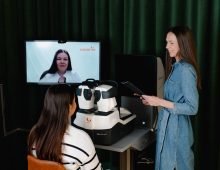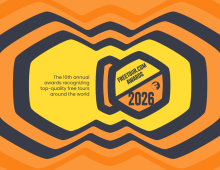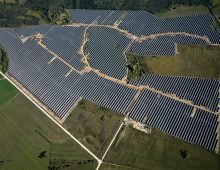A new poll of German voters released on Thursday shows the centre-right opposition bloc still firmly in the lead, but points toward potentially complex coalition options for opposition leader Friedrich Merz.
The poll, conducted by the INSA polling institute on behalf of the Bild newspaper, put Merz’s Christian Democrats (CDU) and their Bavarian sister party, the Christian Social Union (CSU) steady at 30%.
The far-right Alternative for Germany (AfD) slid by one percentage point to 21%. Chancellor Olaf Scholz’s centre-left Social Democrats (SPD) came in third at 15%, with the Greens close behind at 13%, both steady from the previous edition of the poll.
But a bump in support for a couple of smaller parties in the poll, if reflected in the actual election results on Sunday, would splinter the seats in the Bundestag, the lower house of Germany’s parliament.
The hard-left party The Left rose to 7% in the poll, while the upstart populist Sahra Wagenknecht Alliance reached the 5% threshold generally needed to win seats in German elections.
Since every other party has strictly ruled out working with the far-right AfD, the maths mean that Merz would need two coalition partners, as neither a deal with just Scholz’s SPD nor only the Greens would secure a majority.
Such an outcome is almost certain to make negotiations over any coalition agreement more complicated and difficult for Merz, the clear front-runner to replace Scholz after Sunday’s vote.
The poll showed the pro-business liberal Free Democrats down by half a percentage point at 4%, still short of the 5% threshold and unlikely to win any seats.
Pollsters surveyed 2,502 qualified voters on February 18 and 19 for the poll, which carries a margin of error of 2.9 points.
Election polls are subject to uncertainty, with declining party ties and shorter-term election decisions making it more difficult for polling institutes to weight the data.
They reflect public opinion at the time of the survey and are not forecasts of the election outcome.
Source: dpa.com


















